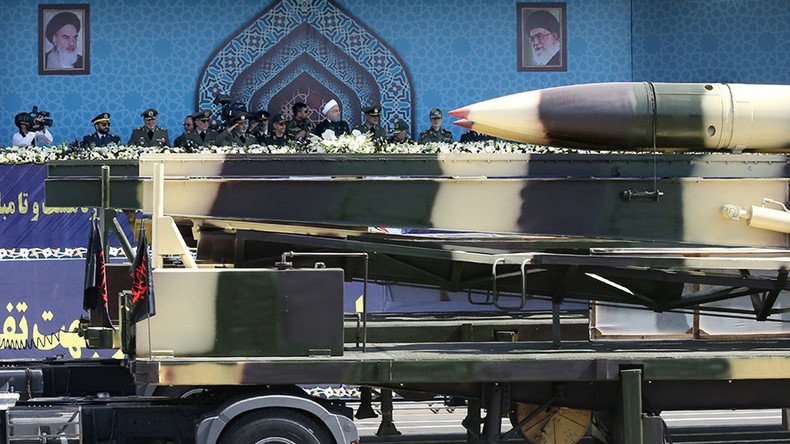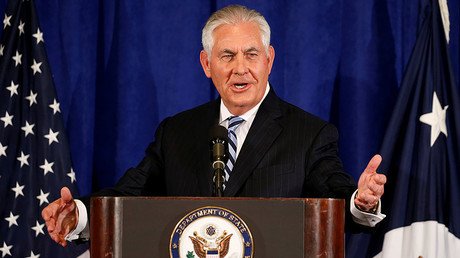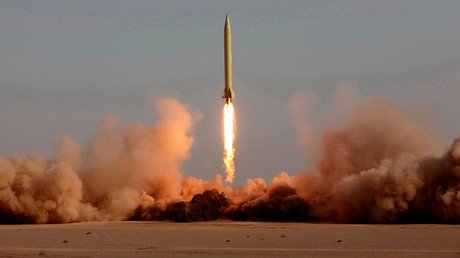Tehran could ‘walk away’ from nuclear deal – Iran’s FM

Iran has all options on the table, including pulling out of the 2015 nuclear agreement and bolstering its nuclear program at a “greater speed,” should President Trump decertify the pact, Foreign Minister Javad Zarif told CNN.
READ MORE: Tehran will boost its missile capabilities, Iranian president Rouhani says
“Iran has a number of options, which include walking away from the deal and going back with greater speed with this nuclear program,” Zarif said in an interview with Fareed Zakaria on his CNN show “GPS,” aired Sunday. The minister stressed that Iran’s nuclear program “will remain peaceful,” but “will not address and accept the limitations that we voluntarily accepted.”
In case the US leader doesn’t recertify the nuclear agreement in mid-October, Tehran will consider options in response. Trump said he has “decided” how to proceed with the agreement but did not publicly share his decision.
Zarif, however, noted that certification is not part of the deal and is only “the US internal procedure.”
“It doesn’t absolve President Trump and the administration of the responsibility because the only authority that has been recognized in the nuclear deal to verify [compliance with the deal] is the IAEA [International Atomic Energy Agency],” the minister said.
The nuclear deal, officially known as the Joint Comprehensive Plan of Action (JCPOA), has to be re-assessed every 90 days by the US president in accordance with a Congress-created mechanism. The next deadline set for October 15. If Trump decides to decertify, Congress will have 60 days to vote on re-imposing the sanctions, lifted under the pact in exchange for Tehran capping its nuclear program.
“Iran has committed itself never to develop nuclear weapons, both as a member of the NPT [Non-Proliferation Treaty] and in the [JCPOA] deal itself,” Zarif continued, deriding a so-called “sunset clause” to the 2015 pact, which Trump claims would erase some of its restrictions over time, as a “myth” existing in Washington.
Having repeatedly stated that Tehran violated the agreement’s “spirit,” despite the pact’s watchdog IAEA confirming Iran’s compliance, Trump reluctantly issued certification in the past. However, Trump recently signaled he might not proceed with the deal, calling it “an embarrassment” and “one of the worst and most one-sided transactions.”
When asked what his message to Trump would be, Zarif urged the US government to look into Iran’s realities.
“The realities in our region are crystal clear, they have been for the last 40 years and the US unfortunately decided to neglect those realities and has not fared well by doing that.”
Iran is pursuing its defensive needs, the minister insisted.
“We have said time and again and we have proven that our missiles are for defense,” Zarif said, reminding how Saddam Hussein ordered airstrikes on the Iranian territory in the Iran-Iraq war.
“We go back to a history where our cities were being showered with missiles from Saddam Hussein,” he said, adding that Saddam used to be “a sweetheart” for the US and some other Western powers.
“Iran didn’t have a single missile to work as a deterrent against its citizens, its civilians being target of almost daily missile attacks.”
This week, Tehran unveiled a new Khorramshahr long-range ballistic missile with a range of 2,000 kilometers, which is capable of delivering several warheads, prompting concerns in the West. Trump took to Twitter to voice his skepticism over weapon’s defensive nature, noting the missile is able to reach Israel.
Iran just test-fired a Ballistic Missile capable of reaching Israel.They are also working with North Korea.Not much of an agreement we have!
— Donald J. Trump (@realDonaldTrump) September 23, 2017














